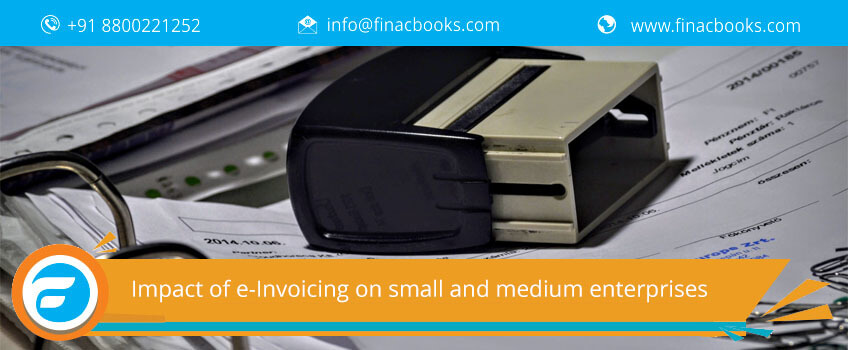E-invoicing is a very important point of discussion amongst business people. Any organization having a turnover of above INR 50 crores is mandated to commit to the process of generating an e-invoice. This step has been welcomed by everyone, but there are issues still to be addressed.
For small and medium enterprises, it may not be that convenient. These firms do not invest much in technology and hence may lack some digital literacy. E-invoicing has been made compulsory for organizations having a turnover of above 50 crores INR. Now as per the revised definition from MSME, enterprises ranging from 51 crores to 250 crores are referred to as medium units.

How is e-invoicing affecting enterprises?
Certain impacts are seen as a result of e-invoicing mandating.
IT infrastructure availability
- e-Invoicing is a portal that links the taxpayers and government authorities.
- The small and medium enterprises that invest little on any such change, can find this unnecessary to invest any amount on anything different.
- Error-free and timely generation of e-invoices is required, which makes it compulsory to keep the IT infrastructure up to date.
- For properly conducting this process, it is important to keep this process automated.
- Robust and up-to-date software is an important point to be considered when it comes to the successful integration of the two authorities.
Approach to the taxpayers
- Earlier before the e-invoicing under GST was introduced, the taxpayers were needed to update the transactions to the government at the end of the month. This approach allowed a relaxed time to the taxpayer before the interaction with the government facilities.
- Now with the e-invoicing system under GST, the taxpayer is asked to report in real-time. There is no extra time budgeted for the work.
- The small and mid-market industries have found it unnecessary and have a reluctant approach towards the same.
- Due to smaller budgets as compared they find it difficult to accept this new system and work per the same.
In a nutshell, we can say that e-invoicing is burdensome to them when there are loads of invoices to be uploaded at the IRP. This can be time-consuming and can hamper the exact data requirements.
Sometimes, it may take time to understand the working through this portal that makes the taxpayers even more resistant to this scheme.












